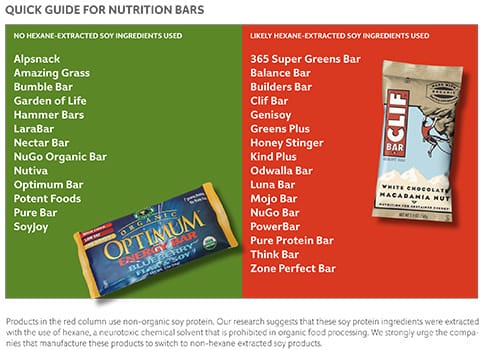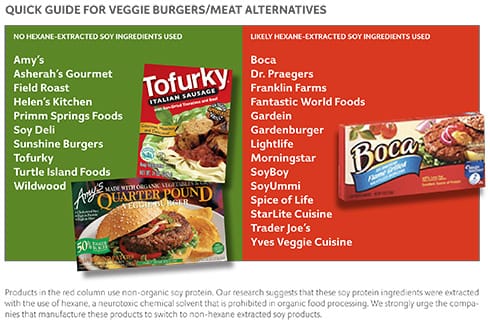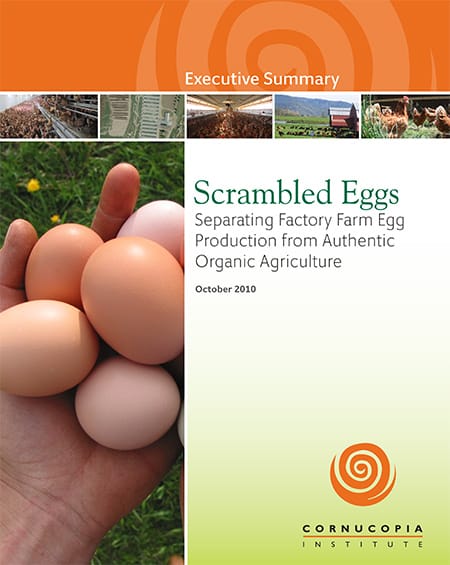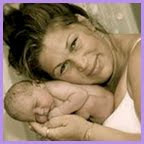I was in a grocery store yesterday. While I was squeezing avocados to pick just the right ones for my family's dinner salad, I overheard a conversation from a couple that had also picked up and avocado.
"Oh, these avocados look good, let's get some."
Then looking up at the price, they said, "Two for five dollars!" Dejected, they put the live avocado back and walked away from the vegetable aisle toward the aisles full of dead, boxed, canned, packaged goods where they can buy thousands of calories of poor-quality, nutrient-poor, factory-made, processed foods filled with sugar, fat, and salt for the same five dollars. This is the scenario millions of Americans struggling to feed their families face every day.
The odd paradox is that food insecurity--not knowing where the next meal is coming from or not having enough money to adequately feed your family--leads to obesity, diabetes and chronic disease. Examining this paradox may help us advocate for policies that make producing fresh fruits, vegetables, and whole other foods cheaper, while rethinking the almost $300 billion in government subsides that support the production of cheap, processed food derived from corn and soy.
At the same time, a Food Revolution, along the lines of that advocated by Jamie Oliver, a radical chef, can help Americans take back their table and their health from a food industry that has driven us to eat more than 50 percent of our meals out of the home compared to less than 2 percent 100 years ago. And most of those meals eaten at home are produced in plants, not grown on plants, are from a food chemist's lab, not a farmer's field. Cooking and eating whole fresh foods at home, can be cheaper, more fun, and simpler than most people think.
So I would ask you to consider: Have you ever made poor food choices because of cost? What is the REAL cost of this cheap food--the cost in dollars, on our health, on our environment, and even on the fraying fabric of our social and family systems?
This is what you need to remember:
1. The true cost of unhealthy food isn't just the price tag--in fact, the real costs are hidden.
2. Eating healthy doesn't have to cost more.
Sure, it seems cheaper to eat a burger, fries, and a soda from McDonald's than to eat a meal of whole foods, but there are healthier options. Let me review why the true costs of eating unhealthy food are hidden, and give you some suggestions that will help you save money and suffering by eating well for less. Poverty or financial limitations do not preclude eating well, creating health and avoiding disease.
Let's start by looking at how our economy and public policy are geared toward the production of cheap, unhealthy food.
Government Policy Supports the Production of Unhealthy Food
Unhealthy food is cheaper because our government's policies support its production. We're spending nearly $30 billion a year to subsidize corn and soy production. Where do those foods go? Into our food supply as high-fructose corn syrup and hydrogenated soybean oil (trans fats), that are the foundation of almost all fast food and processed foods that are "manufactured" by the food industry.
Since the 1970s--when our agricultural policies where changed to support corn and soy farmers--we're consuming, on average, an extra 500 calories (mostly in the form of cheap, artificial high-fructose corn syrup) per person.
Corn and soy are also used to feed cattle for the production of meat and dairy. In fact, 70 percent of the wheat, corn and soy farmed in this country is used to feed animals used for our food. The world's cattle alone consume a quantity of food equal to the caloric needs of 8.7 billion people--more than the entire human population on Earth!
So, when our government helps pay for these foods--well, of course they're cheaper! That explains the low price tag. But what about the OTHER costs to you?
The Hidden Costs of Eating Poorly
We all know that bad foods are bad for your health. It turns out they are also bad for the national pocketbook. For example, one expert has estimated that healthcare costs related to obesity are $118 billion per year. That's nearly 12 percent of total healthcare expenditures--and more than twice that caused by smoking! Seventy-two percent of Americans are overweight and over one third are medically obese. One in three children born today will be diabetic in their lifetime and the life expectancy of our population is declining for the first time in human history.
A report from the Worldwatch Institute called Overfed and Underfed: The Global Epidemic of Malnutrition documented the real costs of obesity related to poor diet--and this does NOT include the other effects of poor diet such as heart disease, cancer, diabetes, dementia, autoimmune diseases, and osteoporosis. Here were some of the conclusions of that report:
• Obese people account for a disproportionate share of health-related absences from work.
• Obesity accounts for 7 percent of lost productivity due to sick leave and disability.
• 7 percent of all of North Carolina's healthcare expenditures are related to obesity.
• Obese people visit their physicians 40 percent more than normal weight people.
• Obese people are 2.5 times more likely to require drugs prescribed for cardiovascular and circulation disorders.
• Liposuction is the number-one form of cosmetic surgery in the US, with 400,000 operations a year.
• Over 100,000 people a year have gastric bypass surgery.
According to a recent study in The New England Journal of Medicine (i), we're spending about $20,000 per person for each extra year of life gained from medical interventions like drugs and surgery ... as if that's something to be proud of!
That doesn't even take into account the $282 billion in costs resulting from medical interventions that go wrong--hospital infections, medical errors, deaths from drug reactions, bedsores, or unnecessary surgeries.
And what if that $20,000 per year was given to each person during his or her lifetime to support better nutrition, lifestyle, and stress management? My guess is that we would save trillions of dollars in health care expenditures on chronic disease!
As these numbers prove, the costs of eating fast, junk, and processed foods are often deferred until later. And that's the key point: When you go to McDonald's for a cheap burger and fries, you might immediately compare that lower price to whole organic foods which are more expensive in the short term. But the total cost isn't reflected in how much you pay for your meal in the immediate moment, it's the cumulative cost of what those decisions cost you over a lifetime.
For example, when you eat unhealthy foods like these, the costs of medical visits, co-pays, prescription medications, and other health services skyrocket. There are other non-economic costs of eating poorly as well. You reduce your ability to enjoy life in the moment due to increased fatigue, low-grade health complaints, obesity, depression, and more.
The biggest advantage of eating well now is not just preventing disease and costs later, but simply enjoying each day to its fullest. You can make that happen. Eating well doesn't have to cost more.
It's true that there are very few, if any, subsidies for the production of produce or healthier alternative foods. And the same government agency that supports the production of the ingredients for junk food provides less than $300 million for education on healthy nutrition.
But change is in the air. Dean Ornish, MD, has shown that a program to teach people to eat better, exercise, and learn stress reduction can prevent heart disease and reduce the need for heart bypass or other treatments. Insurance companies are starting to take notice as some cover the costs for that program. Paying $5,000 for such a program now, Medicare has finally recognized, is better than paying $50,000 later for a cardiac bypass operation.
A number of us advocated last year that a "health council" be established to coordinate and develop national polices that create and support health for Americans. This was part of the health reform bill and the National Council on Prevention, Health Promotion and Public Health was created by executive order of the President in June. Drs. Dean Ornish, Memhet Oz, Michael Roizen and I, among others, have been nominated to be on a twenty-five member advisory council that helps guide the council. The council is made up of all the cabinet secretaries in charge of departments that in some way affect our health--agriculture, health, transportation, environment, trade, labor, and more--and will be chaired by the Surgeon General. This provides a way to influence national policies to support and create health--including our food and agriculture polices--for the first time.
The idea that you can save money by eating well is further supported by studies like the one published by the American Dietetic Association (ii) that shows eating well to lose weight is actually cheaper--or at the worst, no more expensive--than eating poorly! The authors of the study concluded that "adopting a lower-energy, nutrient-dense diet did not increase dietary costs over time. Consequently, cost should not be a barrier in the adoption of a healthful diet."
That's powerful evidence that eating well is not just good for your body, it's good for your wallet, too! Here are some ideas to get you started.
Four Tips to Start Eating Healthy for Less Today
1. Listen to Gandhi. Yes, Gandhi! He said that we should never mistake what is habitual for what is natural. Case in point: Some Chinese are very poor and yet they eat extremely well--small amounts of animal protein, with an abundance of vegetables.
2. Be willing to learn. We have to learn new ways of shopping and eating, new ways of ordering our priorities around our health and nutrition that supports our well-being, even if it is hard at the beginning.
3. Do your research. There are ways to find cheaper sources of produce, whole grains, beans, nuts, and lean animal protein. You just need to seek them out. It doesn't all have to be organic. Simply switching from processed foods to whole foods is a HUGE step in the right direction.
4. Make an effort. Eating healthy does take more planning. It may require you to find new places to hunt and gather for your family. You might have to reorder your priorities regarding where you spend your money and your time so that you can make healthier eating choices.
Remember, eating healthy foods without spending a lot is possible--and you can do it.
Now I'd like to hear from you...
What do you think about the long-term costs of eating poorly?
Do you agree or disagree that eating poorly in the short-term has dramatic long-term consequences on your health care costs?
What other costs of eating poorly have you seen or experienced?
Are you also worried about the exploding costs of health care, whether insurance, medical, Medicare or other costs?
Please share your thoughts by leaving a comment below.
To your good health,
Mark Hyman, MD
References
(i) Cutler D.M., Rosen A.B., and S. Vijan. 2006. The value of medical spending in the United States, 1960-2000. N Engl J Med. 355(9): 920-7.
(ii)Raynor, H.A., Kilanowski, C.K., Esterli, I., et al. 2002. A cost-analysis of adopting a healthful diet in a family-based treatment program. J Am Diet Assoc.102(5): 645-650, 655-656.
Mark Hyman, M.D. is a practicing physician, founder of The UltraWellness Center, a four-time New York Times bestselling author, and an international leader in the field of Functional Medicine. You can follow him on Twitter, connect with him on LinkedIn, watch his videos on YouTube, become a fan on Facebook, and subscribe to his newsletter.
From the Huffinton Post article


























